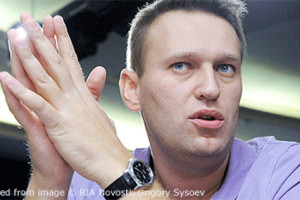Putin’s Renationalization Campaign: Fighting Corruption or Forcing Officials’ Loyalty? (excerpt)

(PONARS Eurasia – ponarseurasia.org – Hilary Appel, Wendy Chuyi Sheng – August 18, 2017)
Hilary Appel is Podlich Family Professor of Government and George R. Roberts Fellow at Claremont McKenna College. Wendy Chuyi Sheng graduated from Claremont McKenna College in 2017 with degrees in Economics and Government.
[Full text here http://www.ponarseurasia.org/memo/putins-renationalization-campaign-fighting-corruption-or-forcing-officials-loyalty]
(PONARS Policy Memo) Large street protests returned to Russia on March 26, 2017, following the posting by Alexei Navalny, the well-known Russian blogger, of a YouTube video accusing Prime Minister Dmitry Medvedev of corruption, profligate spending, and widespread property holding. Tens of thousands of Russians across ninety cities came to the streets. By the end of April, the YouTube video had over 20 million views. Although the Kremlin did not respond to the accusations in the video, the police arrested and briefly detained Navalny for his role in organizing the street demonstrations. The Kremlin arrested Navalny again for his participation in organizing more protests on June 12, 2017, a Russian national holiday when many people are already out on the streets. The Kremlin has good reason to fear Navalny, given his record of mobilizing citizens around the issue of corruption and his important role in the very large demonstrations in Bolotnaya Square in 2011. While the 2011 protests were spurred initially by accusations of fraud in the 2011 Duma elections, Navalny’s rallying cry against the victorious United Russia as the party of “swindlers and thieves” intensified the momentum of the street protests.
A key response to the 2011-2012 demonstrations was the Russian government’s running of an anti-corruption campaign that had a nationalist, patriotic bent. In the aftermath of the protests, a series of legislative proposals appeared in the Duma seeking to curtail the foreign economic activities of deputies and senators. Owning real estate abroad, holding foreign bank accounts and securities, and even sending children abroad to study were all identified as unpatriotic behavior and potential signs of corruption by Russian political elites.
Typically, calls for Russian elites to repatriate both their wealth and their family members were couched in terms of a fight against corruption and a commitment to the national interest, but the particular form of the 2011-2012 anti-corruption campaign reflected the Kremlin’s need to consolidate power and ensure elite loyalty. Given the recent wave of protests against corruption in 2017 and the patriotic rhetoric that has permeated Vladimir Putin’s third term as president, the government may renew its calls for repatriation and limitations on civil servants. Such an approach serves multiple ends: it defuses public anger toward the political establishment, diminishes capital outflows, and sounds the alarm that disloyalty won’t be tolerated, all while leaving the biggest (and most loyal) corrupt elite offenders largely untouched….
Conclusion
When Navalny’s blog shines a light on corruption, it tends to attract the attention of the nation. The recent Medvedev exposé was widely shared and reached the highest levels of government. Navalny’s other exposés have also hit a nerve. For instance, when his blog published detailed evidence that Vladimir Pekhtin, co-founder of United Russia, held undeclared property in Florida, Pekhtin had to vacate his parliamentary seat. Similarly, several other senators resigned from the parliament due to reporting about their malfeasance. The Kremlin abandoned these politicians to satisfy the angry public and to silence its critics. In the case of Pekhtin, his resignation was considered a great victory for the opposition. However, many analysts pointed out that his departure was, in essence, decided by the Kremlin. While Medvedev managed to survive the public accusations against him, perceptions about extensive corruption by a leader so close to the president himself may be more than the Kremlin can tolerate over time. It is unclear whether the recent round of corruption accusations will spur another government anti-corruption campaign, but if so, it is likely that it will again be a patriotic repatriation campaign.
